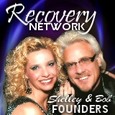Drug and alcohol addiction recovery is a process, and a process that continues for life.
Unfortunately, because no one is ever "cured" completely from the temptations of addiction, relapse is too often a part of the recovery process.
A drug or alcohol relapse does not mean the end of recovery, it's merely a stage in the journey that needs to be effectively dealt with.
Although relapse can be emotionally difficult on both the recovering addict and the family, relapse should never mean an acceptance of failure.
It should simply mean that the alcoholic or addict needs to work harder than ever to get back to sobriety. There also needs to be an examination of what caused the relapse and how adjustments can be made to improved the sobriety plan.
Relapse, even after participation in a rehab program is common.
It's safe to say that one or more relapses are more likely than not going to occur at some point in the journey to recovery.
But that doesn’t mean that a relapse must happen, and for many people, one intensive and serious commitment to treatment is enough to motivate behavioral change and a lifetime of sobriety.
To increase the odds of long term sobriety, the recovering addict/alcoholic needs to participate fully and honestly in all of the recovery and relapse prevention programs during treatment.
The recovering addict/alcoholic needs to work to discover their triggers to abuse, to develop a personalized recovery plan, and to follow that plan once rehab is completed.
The recovering addict must also make a long term commitment to participate in aftercare programs.
No two addicts are alike. How one stays sober long-term and the other relapses, is hard to understand. In general, there are a few important components to success in drug and alcohol addiction treatment.
No one but the recovering addict can induce personal change and growth, and create the best probability of long-term sobriety.
Making the use of all tools available in treatment must be maximized. Full, honest and introspective participation in recovery sessions allows for growth and self-awareness that makes future abuse less likely.
Anyone can go through the motions, and ultimately, even the toughest of programs cannot create internal change in a resistant person.
Change comes from within, and change starts with a commitment to hard, emotional, and honest recovery and reflection.
The RECOVERY NETWORK has just released a NEW ebook that gives tips, tools and techniques exclusively for Relapse Prevention.
To read more, go here: http://www.drug-alcohol-addiction-recovery.com/Relapse-Prevention-Ebook....
Robert and Shelley are founders of a website called: RECOVERY NETWORK. They are both in recovery and today live, happy, joyous and free!

Post new comment
Please Register or Login to post new comment.